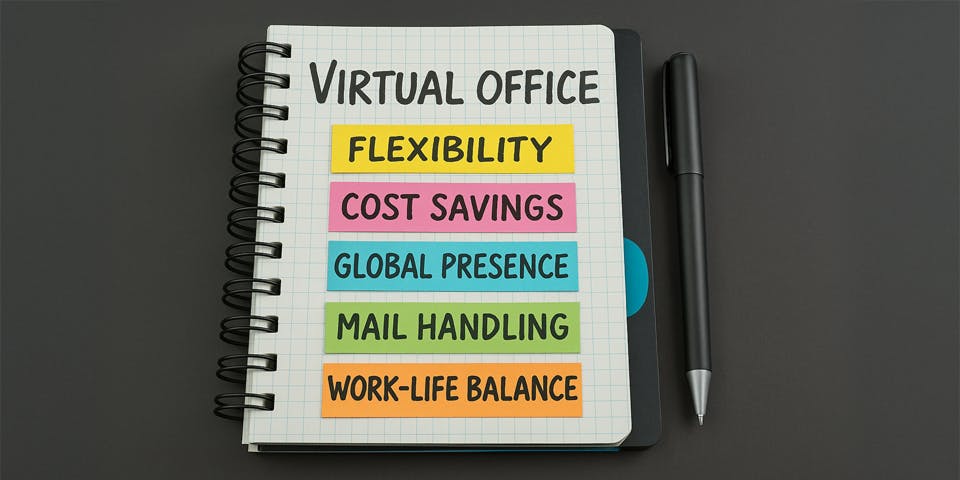28 February, 2024
Actual Sole Trader Tax Rate in the UK: How Much Tax Does a Sole Trader Pay in 2024?
Table of Contents
Being a sole trader in the UK comes with many advantages, including being your own boss and having flexible working hours. However, it also comes with the responsibility of managing your taxes. Navigating the world of tax can be tricky, especially when it comes to the question, “How much tax do sole traders pay?” This guide will break down the sole trader tax rate in the UK for 2024, helping you understand what you need to pay and when.

What Do I Need to Have to Be a Sole Trader in the UK?
While understanding UK sole trader tax rates is crucial, it’s worth mentioning that being a sole trader comes with many perks beyond financial considerations. The advantages can be incredibly rewarding, from the freedom and flexibility of being your own boss to the satisfaction of building your own venture. If you’re curious to learn more about running your own business, check out the sole trader advantages and disadvantages.
Of course, before diving into the world of self-employment, it’s essential to understand the registration process. Luckily, registering as a sole trader in the UK can be pretty straightforward with the proper guidance. We’ve compiled a guide where we explain each step of how to register as a sole trader in detail, taking the mystery out of the process.
What Taxes Does a Sole Trader Need to Pay in the UK in 2024?
Navigating the world of taxes as a sole trader can feel overwhelming, but understanding your obligations is crucial for running your business smoothly. Here’s a breakdown of the main taxes you'll encounter, considering the applicable sole trader tax brackets:
Income Tax
- Personal Allowance: The first £12,570 of your profits in 2024 are tax-free thanks to — the personal allowance.
- Basic Rate (20%): Any profits between £12,571 and £50,270 are taxed at the basic rate of 20%. This means you’ll pay £972 in tax if you earn £30,000, for example, as only the portion exceeding the personal allowance is taxed at this rate.
- Higher Rate (40%): Profits between £50,271 and £150,000 are taxed at the higher rate of 40%. So, on a profit of £80,000, you’d pay £972 for the basic rate portion (£30,000–£12,570) and an additional £12,000 (£50,270–£30,000) at the higher rate, totalling £12,972 in tax.
- Additional Rate (45%): Any profits exceeding £150,000 are taxed at the top rate of 45%.
National Insurance Contributions (NICs)
- Class 2 NICs: You must pay £3.15 per week if your profits are between £6,725 and £9,880 a year.
- Class 4 NICs: These kick in on any profits above £9,880 and are calculated at a rate of 10.5% on profits up to £50,270, then 3.25% on any profits exceeding that amount.
Value Added Tax (VAT):
You’ll only need to register for VAT if your turnover exceeds £85,000 in a rolling 12-month period. Remember, this is a simplified overview, and your specific tax situation may vary depending on your individual circumstances.
What is not Taxed?
It would help if you deduct all permitted costs when calculating your profit. This is the amount that determines how much taxes a sole trader pays in the UK for tax and social security. Here is a list of things that fall under legitimate business expenses.
The costs of running your office
Working from home, you can offset most of your household bills, which include heating, electricity, water consumption, Internet, etc. If you prefer to use an office for work-related purposes to keep your business away from home, HMRC will accept a reasonable estimate as long as your claim is modest enough.
Office equipment
Sometimes, you can also claim tax returns for office equipment, like computers and printers, through capital allowance, but it depends on the frequency of their usage. Unless you are utilising the cash basis, costs associated with software licences and rents may be deducted against earnings during the rental.
Travelling
You can deduct a percentage of the actual costs associated with operating a car if you don't utilise the established mileage rate. The amount you are eligible to claim is based on how often your vehicle was used for business purposes, which may be determined using the mileage record. Travel and lodging expenses for business trips may also be claimed, except for home-work commuting.
How Can I Do Accounting?
Being a sole trader implies dealing with many tasks simultaneously. However, given their hectic schedule, they cannot always make enough time for everything. Sometimes you just cannot remember everything — how much taxes a sole trader pays, when to do this, and how you can save money on taxes. For this reason, the question of who is going to do the accounting arises.
The first option is to hire an accountant. They will save you from some multitasking and guarantee that you receive the tax credits and deductions you are entitled to. Another way is to look into the software which will assist you with doing monotonous calculations. Today, startups and small businesses are spoilt for choice in terms of online accounting software programmes. For small company owners, technology helps to lessen the burden of bookkeeping and accounting while also offering several additional advantages. For a starting sole trader paying tax, such software is necessary for accurate tax calculations.
Expert Advice You May Need
Doing tax accounting can surely be overwhelming at times. Here are some expert tips on how to make this process easier and more efficient.
Keep records of expenses
Recording money coming in and going out is a fundamental component of bookkeeping. Keep track of the money collected in one column and the money paid in another in a spreadsheet or even simply a book. To provide the taxman with the information he wants, you must detail how you earned and spent money.
Monitor financial records
Your financial records should line up with your statements. If they don’t, you or the bank must have done something wrong. Ideally, you’ve already adopted cloud-based accounting software, which enables you to reconcile your accounts using an automatic feed from your bank.
Choose a convenient software
Start-ups often face the challenge of choosing the right software for their business. The matter is that you won’t know what works best for your business until you try one of the available online solutions. You should consider the following implications before selecting the web-based accounting alternative. Check if it offers VAT, multi-currencies, reporting, and bank modules and whether it can link to personal annual tax returns.
Key Dates and Deadlines for Sole Traders in the UK for 2024
Staying on top of tax for sole traders' deadlines and maintaining robust sole trader accounting is essential to avoid penalties. Here are some key dates for sole traders in the UK for 2024:
31 January 2025: Deadline to file your Self Assessment tax return for the 2023-24 tax year.
1 February 2025: Deadline to pay any outstanding tax owed for the 2023-24 tax year.
5 April 2024: Deadline to register for Self Assessment if you started trading in the 2023-24 tax year.
31 July 2024: Deadline to pay your first payment on account for the 2024-25 tax year (if your profits were more than £50,000 in the previous year).
31 January 2025: Deadline to pay your second payment on account for the 2024-25 tax year.
For a more comprehensive list of deadlines and helpful resources, visit the GOV.UK website.
How The Hoxton Mix Can Help
If you are considering registering a new company in the UK and are in two minds about how to make your business address, The Hoxton Mix is there to help set up your virtual office address in London. We are a leading virtual office provider specialising in technological approaches to virtual office solutions. We've helped more than 40,000 SMEs manage their business remotely without the need to worry about storage, delivery, customer service, and other concerns. Our company has experience cooperating with different highly-respected partners and has a compelling rate. Want your business up and running without overhead expenses? The Hoxton Mix has much to offer for a pleasant price.
Final Thoughts
Navigating the world of tax for sole traders can be daunting, but with the correct information and guidance, you can stay compliant and avoid any unnecessary penalties. All it takes is to take responsibility for your decisions and foresee possible unexpected contingencies so they don’t harm your business in the long run.
Also, discover the exciting world of fee-free business banking in the UK! Delve into the article that unveils the quick and effortless steps to set up your own free business banking UK account in just a matter of minutes.
FAQ
How do I do a tax return as a sole trader?
You can file your tax return online through the HMRC website. However, if your finances are complex or you need clarification on something, it’s advisable to seek professional help from an accountant.
How much tax do I pay as a sole trader?
The amount you pay depends on different factors, including your profits and the applicable tax rates. Only a qualified expert will be able to give you accurate information. That’s why we recommend consulting with a skilled accountant or tax advisor.
Do sole traders pay corporation tax?
No, sole traders do not pay corporation tax. This tax is levied on limited companies, not on sole traders.
Do I need an accountant as a sole trader?
Whether you want to do the accounting yourself or hire a person for this work is up to you. A single proprietor is not legally required to employ an accountant, but it is a good idea if you want to be sure that all of your tax affairs are in order.
Hand-picked related articles

London
Virtual Office
Mail Management






